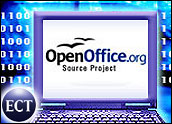
For those who think the SCO Group v. IBM lawsuit has gotten too ugly to watch, there is a fresh fight in the open-source arena over the ownership of Mambo.
Mambo, an open-source content-management system, is maintained by developers at the Mambo Group, and its copyright is owned by Australian firm Miro.
However, Brian Connolly, the president of an online publishing Web site called Furthermore, recently issued a letter to the open-source community, claiming that he owns the code behind Mambo Open Source and advising any users that they might be candidates for both civil and criminal litigation.
Mambo responded by issuing its own statement, noting that it has investigated the claims and finds that Connolly is mistaken.
At Issue
The tussle over Mambo apparently began in September 2003, when Connolly hired Mambo developer Emir Sakic.
According to Connolly, Sakic took code without permission and put it into Mambo’s core program.
As a result, Connolly noted that Mambo users have taken functionality that allows a Web site to feature content in a Frontpage format and used it without his permission.
Connolly insists that because the code was developed for him and used by Furthermore, he should have exclusive rights to the concept.
The statements that have been swapped between Mambo and Connolly have been passionate, as both sides try to emphasize the strengths of their position.
OSSI Involvement
In an interview with LinuxInsider, Connolly asserted that Mambo is trying to “weasel out” of dealing with him. He also said that he had tried to involve the Open Source Software Institute (OSSI) in the fray with Miro in order to reach an adequate agreement.
“At first, Miro said they were interested,” he said. “Then they told the OSSI to take a flying leap.” As a result, Connolly says that the OSSI has withdrawn from the fight.
“You can’t mediate when one party won’t cooperate,” he said. “And that’s what Mambo and Miro are doing.”
Connolly asserted his claim “is not a land grab,” and that he is not interested in taking code that does not belong to him. Rather, he explained, he is merely trying to protect himself.
“I just want to defend myself from thieves,” he said.
Connolly indicated he believes that while the issue is being decided, Mambo users should take a very decisive step: “As long as there’s a copyright question, no one should use Mambo.”
Doing the Mambo
In response to Connolly’s accusations, Sakic posted a statement on the Mambo site. He said that when Connolly hired him to do Mambo Open Source customization for Literatigroup.com, there was no copyright agreement or contract signed.
He also noted that he modified an existing Mambo Frontpage component and hard coded nine lines of code that would display the leading story. According to Sakic, this alteration was a copy from another part of the original Frontpage component released under GPL and copyrighted by Miro.
“I was not the original author of the Frontpage component in question,” Sakic wrote, “and thus, Brian Connolly does not own the code.”
Mitch Pirtle, a lead Mambo developer, told LinuxInsider that Mambo Group will issue no more official statements until it develops a legal strategy. Miro said it will issue an official statement on the situation later this week.
However, Pirtle did note that Connolly has been asked to send the code in question but has not delivered that code.
“We keep asking him to send us the contract, to prove his claims, and he hasn’t given us that,” Pirtle said. “Now, he’s switched his tone to make it sound like we’re in the wrong and won’t meet him in the middle. And that’s just not the way it is.”
In other statements, Mambo also has questioned Connolly’s timing. Although the work was done more than a year ago, Connolly has only made the accusations recently, and the timing coincides with the launch of his new Web site.
Connolly said there is no marketing angle to the timing, that he merely issued his open letter to the community when he felt it was appropriate.





















































